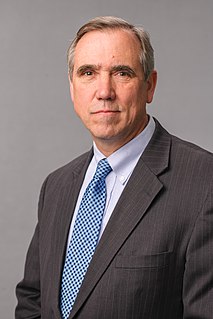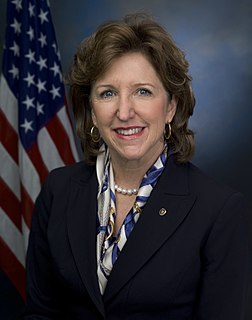A Quote by Bernie Sanders
No. It is not acceptable that the 6 largest financial institutions in this country have assets of almost 10 trillion dollars, and issue half of the mortgages and two-thirds of the credit cards. That is too much wealth and power in the hands of a few. If Teddy Roosevelt were alive today he'd tell us to 'break them up.' And he'd be right. These huge banks must be broken up.
Quote Topics
Acceptable
Alive
Almost
Assets
Banks
Break
Broken
Broken Up
Cards
Country
Credit
Credit Card
Credit Cards
Dollars
Few
Financial
Financial Institutions
Half
Hands
Huge
Institutions
Issue
Largest
Much
Must
Power
Right
Roosevelt
Teddy
Teddy Roosevelt
Tell
Them
Thirds
Today
Too
Too Much
Trillion
Two
Two-Thirds
Up
Us
Wealth
Were
Related Quotes
When you have three out of the four largest banks in America today, bigger than they were - significantly bigger than when we bailed them out because they were too big to fail, I think if Teddy Roosevelt were alive today, a good Republican by the way, what he would say is: Break them up; they are too powerful economically; they are too powerful politically.
The world is a puzzling place today. All these banks sending us credit cards, with our names on them. Well, we didn't order any credit cards! We don't spend what we don't have. So we just cut them in half and throw them out, just as soon as we open them in the mail. Imagine a bank sending credit cards to two ladies over a hundred years old! What are those folks thinking?
The financial collapse of 2008 got its start with predatory mortgages, that weren’t sold by community banks and credit unions, they were sold by fly by night mortgage brokers who had almost zero federal oversight and then the big banks looked over, saw the profit potential and they wanted it bad. So they jumped in and sold millions of these terrible mortgages while the bank regulators just looked the other way.
I've picked up quite a few yellow cards in the last few years - a few reds, too. That was the case as a youth player as it is now. But I don't see it as a problem. That's how I play. If you take that away, then I wouldn't be where I am now. So I don't think the yellow cards or the red cards are too big of an issue.
In September 2008, the two largest housing mortgage companies called Fannie Mae and Freddie Mac, which were government-sponsored enterprises, which hold hundreds of billions of dollars of mortgages, because of the losses they took on the mortgages, they essentially became insolvent, and the government had to take them over.
Without question, the balance of power on the planet today lies in the hands of business. Corporations rival governments in wealth, influence, and power. Indeed, business all too often pulls the strings of government. Competing institutions-religion, the press, even the military-play subordinate roles in much of the world today. If a values-driven approach to business can begin to redirect this vast power toward more constructive ends than the simple accumulation of wealth, the human race and Planet Earth will have a fighting chance.
Financial innovation can be highly dangerous, though almost no one will tell you this. New financial products are typically created for sunny days and are almost never stress-tested for stormy weather. Securitization is an area that almost perfectly fits this description; markets for securitized assets such as subprime mortgages completely collapsed in 2008 and have not fully recovered. Ironically, the government is eager to restore the securitization markets back to their pre-collapse stature.































